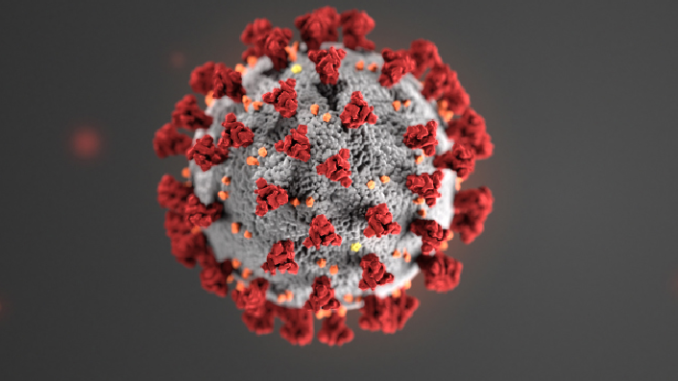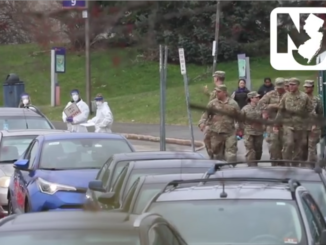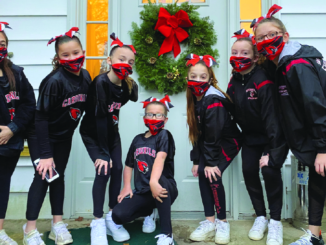
HACKENSACK—In light of the death of a 69-year-old Little Ferry resident, Bergen County Executive Jim Tedesco III has declared a State of Emergency for the County of Bergen, New Jersey’s largest county.
Among the order’s directives: an exposure warning to seniors and other vulnerable people and an immediate ban on all county business-related international travel or domestic travel to any states that have reported COVID-19 cases.
Similar travel restrictions are strongly recommended to all county businesses.
New Jersey Gov. Phil Murphy and New York Gov. Andrew Cuomo had recently declared states of emergency as well, adding to a growing list.
The Little Ferry man hasn’t been identified but health officials said he had underlying conditions including emphysema, hypertension, and diabetes. He had no travel “nexus” to high-risk countries but worked in New York.
In Tedesco’s executive order, issued March 10, he said in part that the spread of COVID-19 in New Jersey at a rate comparable to the rate of spread in other affected areas “would greatly strain the resources and capabilities of county and municipal governments, including public health agencies, which provide essential services for containing and mitigating the spread of contagious diseases, such as COVID-19.”
He added that, following the fatality—and with 15 presumptive cases documented in the Garden State—the county “will implement more aggressive mitigation measures in conjunction with the current containment efforts to combat COVID-19.”
Tedesco also noted that Bergen County provides the services of Health Officer to 35 of 70 municipalities that comprise the county and that “the Centers for Disease Control (CDC) have determined that COVID-19 generally presents a low risk to children but seniors, particularly those with underlying chronic medical conditions are at high risk of serious illness from the disease.”
Tedesco’s State of Emergency declares:
- A health emergency hereby exists within Bergen County regarding the Coronavirus (COVID-19).
- All necessary county agencies are authorized to take appropriate action to assist municipal governments in containing, preparing for, responding to, and recovering from this COVID-19 outbreak.
- All County Departments and agencies immediately shall implement any and all infectious disease guidelines and protocols and use all personal protective equipment in connection therewith.
- All County Departments and agencies shall provide all necessary assistance to federal, state and local authorities to protect the health, welfare, and safety of the citizens of Bergen County during this COVID-19 outbreak, and shall prioritize the most vulnerable county residents served and develop the appropriate contingency plans to avoid any disruption of services. With a special focus on senior centers and Meals-on-Wheels recipients.
- All County employees shall follow all local, County, State and Federal health recommendations, in addition to Centers for Disease Control recommendations including but not limited to handwashing, sanitizing, and basic infection control procedures.
- There is an immediate ban on all County business related international travel or domestic travel to any states that have reported COVID-19 cases. Similar travel restrictions are strongly recommended to all county businesses.
- In order to protect those who may be more susceptible to COVID-19, their families and loved ones, visitation at the Bergen County Health Care Center in Rockleigh, New Jersey, is hereby suspended until further notice. The facility is hereby directed to review alternative technological means to provide visitation to residents. Similar measures are strongly recommended at the many long term care and senior focused facilities throughout the County.
- Bergen County residents who are seniors, particularly those with underlying health conditions, are strongly encouraged to avoid large crowds and large gatherings while COVID- 19 remains a threat.
To combat COVID-19, Tedesco said, the county shall be permitted whenever necessary to procure the necessary goods or services, which are not available under contracts currently in existence with the county, without complying with the New Jersey Public Contracts Law (N.J.S.A. 40A:11-6 et. seq.), including but not limited to the following:
- to award emergency contracts, including but not limited to emergency contracts or leases for relocation and support of County operations for professional services for purchases of commodities, services, and technology;
- to purchase food, supplies, services, and equipment;
- to procure any supplies or equipment required to ensure adequate sanitization, cleaning or sterilization of any facility or location.
- The County Health Officer shall implement any emergency regulations or amendments to any sanitary or health codes of the 35 municipalities in which services are provided by the Health Officer, and recommend same to the remaining 35 municipalities.
- The County Health Officer shall engage in periodic and regular communication with all local health officers in order to coordinate activities, avoid any gaps in information sharing and collaborate on containment and mitigation measures in order to ensure accurate and comprehensive contact tracing to effectively combat the spread of COVID-19.
- All County agencies shall take all reasonable measures to protect the health and safety of such vulnerable and at-risk populations, including safe treatment, transfer and discharge practices, and to comply with the Emergency Medical Treatment and Active Labor Act (42 U.S.C. section 1395dd) and any associated regulations.
- The County Health Officer and all County Departments and Divisions shall work collaboratively to determine and execute effective strategies, initiatives, protocols and procedures to prevent, mitigate and combat the spread of COVID-19, particularly among the most vulnerable and at-risk populations, including but not limited to senior centers and nursing homes; and take all action to the extent necessary to maintain the public health with respect to treatment or containment of persons with or possibly exposed to COVID-19.



